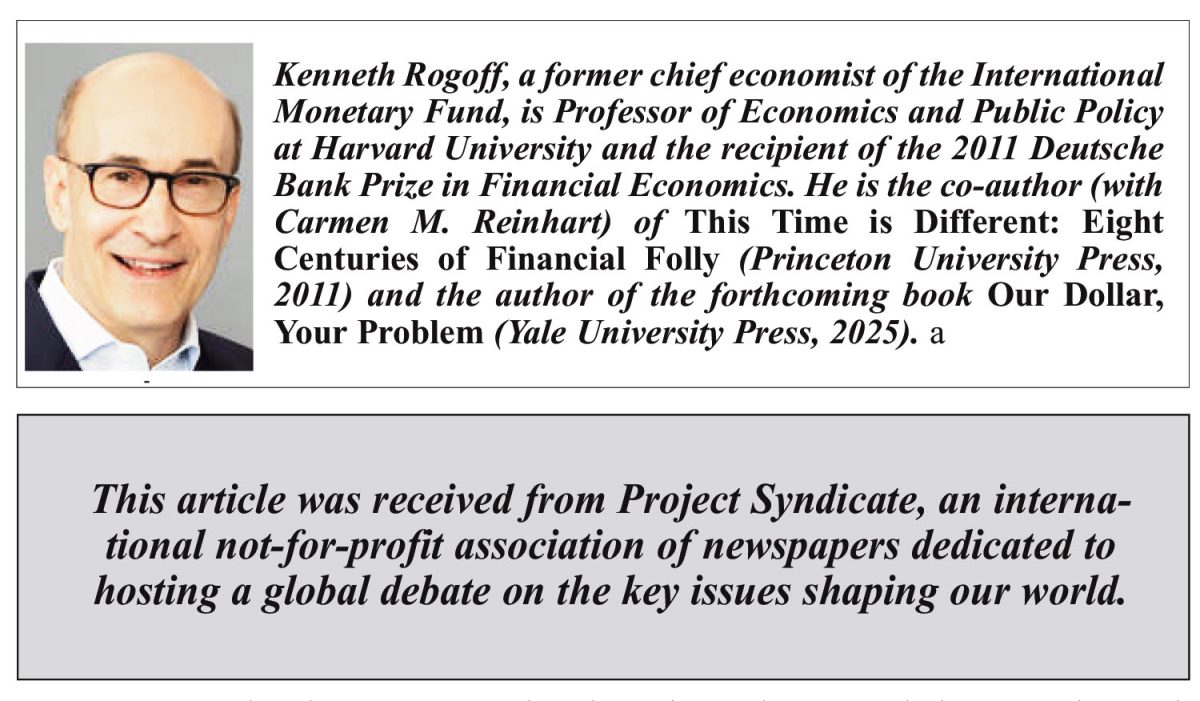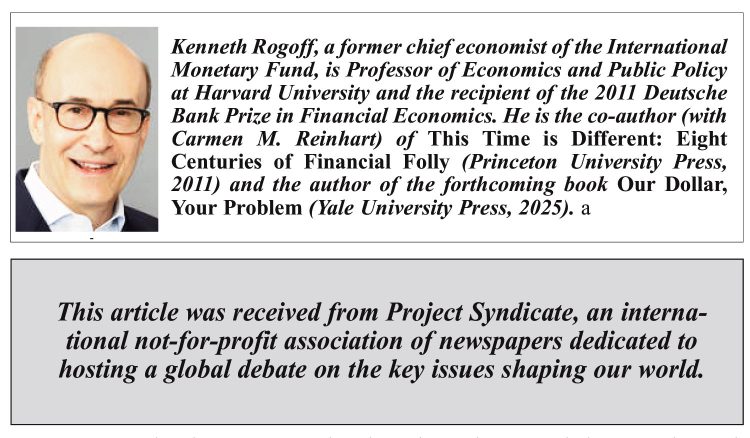DAVOS – This year’s World Economic Forum in Davos was brimming with creative ideas about how to save the planet, reduce inequality, and tackle urgent security needs. Overwhelmingly, though, the big takeaway was how depressed the Europeans are, about their economy and especially about Donald Trump.
Their anxiety is not baseless: Trump poses an existential threat to Europe in three key ways. First, he insists that Europe must take full responsibility for its own defense – a demand many political leaders find difficult to comprehend. In his Davos speech, delivered remotely from Washington, Trump once again called on European governments to boost defense spending to 5% of GDP. Given that many EU countries like Italy are already struggling to meet the 2% target they committed to during Barack Obama’s presidency, it is clear why Trump’s demand is a major source of anxiety.
Second, Trump seems determined to make good on his threats to impose sweeping tariffs, dealing a crushing blow to European exporters facing increasingly stiff competition from China. While Trump’s rhetoric appears to leave room for individual countries to negotiate lower tariffs, his record of fulfilling campaign promises suggests otherwise. Having reversed former President Joe Biden’s open-borders and DEI (diversity, equity, and inclusion) policies, he is likely to impose “beautiful” tariffs next, despite widespread opposition from economists.
Trump’s proposed tariffs would have a particularly severe impact on Germany, Europe’s largest economy. After two consecutive years of recession, Germany’s export-led growth model appears to be faltering. If Trump imposes high import tariffs on German goods, a third year of recession is likely to follow.
The textbook approach would be for Europe to turn the other cheek, because the country that imposes tariffs often suffers the most from them. But try explaining that to voters. With a passive response likely to be seen domestically as a sign of weakness, the temptation to confront Trump’s bullying and retaliate may be impossible to resist.
The outcome of such a confrontation is anyone’s guess. Trump, who views Europe’s chronic trade surplus with the United States as clear evidence of unfair competition, will not back down. Never mind that most economists argue that the surplus is largely due to Europeans’ preference for investing in US assets, which have consistently outperformed Europe’s and are widely expected to continue doing so.
Third, Trump’s plan to shore up America’s energy supply puts Europe’s green movement in a difficult position. The European Union’s energy prices are several times higher than those in the US, largely owing to the Russia-Ukraine war and the cost of the bloc’s rapid green transition. High energy prices are making it increasingly difficult for EU industries to remain competitive, especially in critical emerging sectors like artificial intelligence.
So, what can Europe do? For starters, policymakers must stay focused and not allow Trump’s chaotic policies to distract them from their top priorities. Chief among these is finding ways to reduce energy prices, with small-scale nuclear technologies offering a promising step forward.
Moreover, Trump’s climate-change denialism and “drill, baby, drill” agenda represent a significant challenge for the EU, already at risk of slipping into geopolitical irrelevance. While embracing clean energy is admirable, Europe’s efforts alone will have a limited impact on global warming, especially with China and India still generating roughly 60% of their electricity from coal. To convince other countries to follow in its footsteps, Europe must prove that it can be both green and competitive; otherwise, it will become a cautionary tale.
In the face of Trump’s threats and growing Chinese competition, European governments would do well to temper their enthusiasm for regulation. As the saying goes, “The US innovates, China replicates, and Europe regulates.”
UK Chancellor of the Exchequer Rachel Reeves rightly views deregulation as a potential way to improve Britain’s growth prospects. But the United Kingdom will struggle to restore growth unless EU member states – particularly France – set aside petty grievances and offer the United Kingdom a Norway-style trade deal. Such an agreement would be mutually beneficial: Europe needs the UK’s financial sector, and UK companies need access to European markets.
Even if Europe takes these steps, it will have a hard time dealing with Trump. To have a fighting chance, EU countries must recognize that the roots of their current malaise run much deeper. Regardless of Trump’s re-election, European governments need to address the underlying causes of economic stagnation.
To be sure, Europe should be commended for implementing policies to address climate change and curb the tech sector’s overreach. In time, the US and China may recognize the value of progressive EU policies and follow suit. But if they remain unconvinced, Europe will be the one forced to adapt. If it fails to do so, the European Commission may end up looking like the Los Angeles Fire Department – scrambling to contain fires after the damage has already been done.
Copyright: Project Syndicate, 2025.









